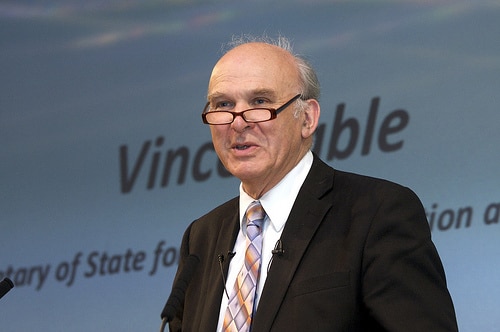
The review commissioned by the Department for Business, Innovation & Skills (BIS) in to intellectual property in the digital age is due to be handed to the department’s secretary of state Vince Cable and chancellor George Osborne in April, under its terms of reference.
But, just as with the plurality examination of News Corp.’s proposed BSkyB (NYSE: BSY) takeover, it looks like responsibility for examining and acting on the IP review could also pass to Department for Culture, Media & Sport secretary of state Jeremy Hunt.
The prime minister stripped Liberal Democrat BIS secretary Cable of oversight in the News Corp (NSDQ: NWS) case in December, after comments he made about the subject on a recording were deemed to have compromised his position.
But the effect applied to more than just the News Corp case, encompassing all media, broadcasting, digital and telecoms issues. Asked if Cable would consider the IP Review as planned, a BIS spokesperson told paidContent:UK today:-
“As the Prime Minister made clear, policy issues relating to media, broadcasting, digital and the telecomms sectors have been transferred to Culture Secretary Jeremy Hunt.
“The Permanent Secretary for BIS, Martin Donnelly, has had detailed discussions with his opposite number at DCMS on the moves needed to support ministers at DCMS. The new arrangements will be finalised this month.”
BIS commissioned Professor Ian Hargreaves to examine:-
- “Barriers to new internet-based business models, including the costs of obtaining permissions from existing rights-holders”.
- “The cost and complexity of enforcing intellectual property rights within the UK and internationally”.
- “The interaction between IP and Competition frameworks”.
- “The cost and complexity to SMEs of accessing services to help them protect and exploit their IP”.
The review panel has called for evidence, which will likely be submitted by a range of media and digital organisations. James Murdoch in 2010 made high-profile remarks supporting the intellectual property principles laid out by the 300-year-old Statute Of Anne.